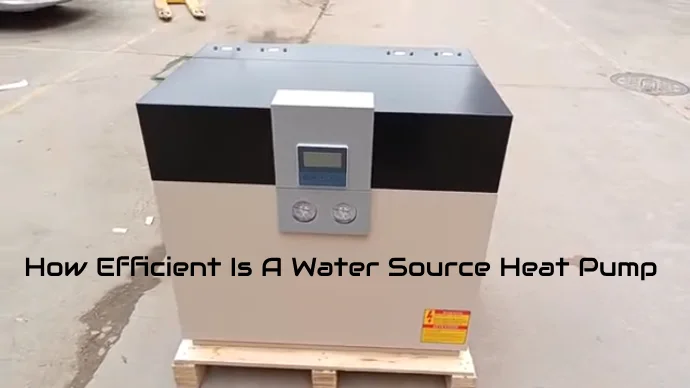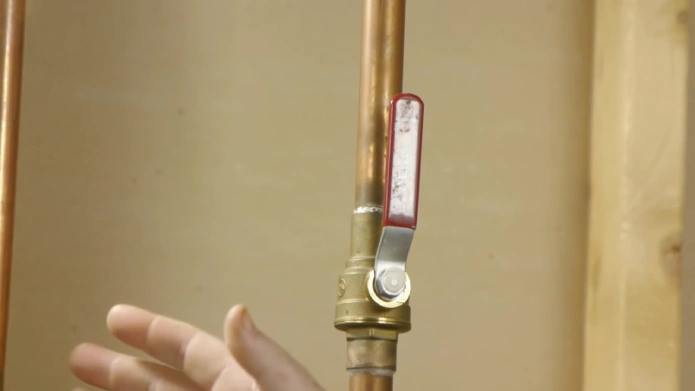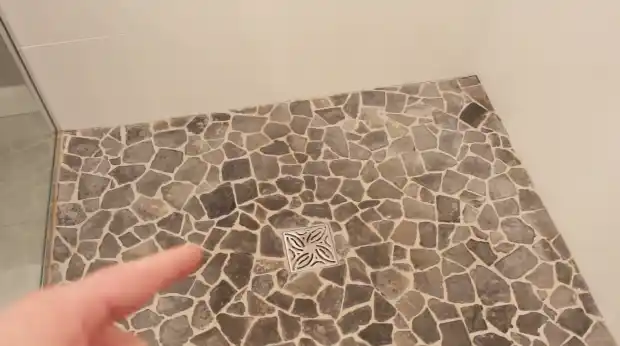Last Updated on June 21, 2023
Water source heat pumps offer an exciting alternative to traditional heating and cooling systems. A water source heat pump delivers efficiency and reliability seamlessly in today’s world. In addition to its energy efficiency, it is also exceptionally reliable.
Indeed, there are essential factors upon which the efficiency of water source heat pumps hinges. Notably, the temperature discrepancy constitutes one of them.
However, the energy consumption of pumps and fans and the ideal sizing and design of the hydronic systems are equally crucial. Interestingly, water source heat pumps surpass gas boilers with a 400% efficiency score.
Let’s unveil the secrets of water source heat pumps: key factors affecting their performance. Don’t miss out on this fascinating read.
What Factors Affect the Efficiency of a Water Source Heat Pump?

Water source heat pumps’ efficiency can be affected by several factors. Here are a few:
A. The Temperature and Quality of the Water Source
Optimizing the medium from which heat is extracted is crucial for maximizing the performance and longevity of a heat pump system. Water quality and temperature play a pivotal role in achieving this optimization.
The performance of a water source heat pump is directly proportional to the temperature of the water source. Warmer water requires less energy to extract heat, thereby improving the system’s overall efficiency. However, exceeding the maximum allowable temperature can cause damage to the system.
The quality of the water source is another important factor that can impact the system’s efficiency. The water’s mineral content and chemical composition can cause scaling and corrosion, reducing heat transfer and increasing energy consumption.
Calcium and magnesium can cause scaling, while water with high oxygen levels and low pH can cause metal components to corrode, leading to leaks. Choosing a water source heat pump system depends on the water source’s temperature and quality.
B. Proper Sizing and Installation of the System
Proper sizing and installation of a water heating and cooling system are crucial for optimal performance and longevity. If the system is too big or too small for the building’s heating and cooling demands, it will result in inefficiencies and increased energy costs.
Accurate sizing requires evaluating the building’s needs, such as the number of occupants, space size, and desired temperature range.
Aside from appropriate sizing, proper placement and piping are essential for optimal water source heat pump system performance. The location and orientation of the heat pump unit, distribution piping, and heat exchanger significantly impact the system’s efficiency.
If placed or piped poorly, energy losses occur, efficiency decreases, and maintenance costs increase.
C. Insulation and Weatherization of the Building
Proper insulation and weatherization of a building are crucial for effective heating and cooling. Insulation reduces heat transfer, lowering energy consumption needed for maintaining a comfortable indoor temperature.
Adequate weatherization ensures that indoor temperature is upheld by reducing air leakage from the building. These measures are necessary for a water source heat pump to work harder to maintain optimal temperature, resulting in higher utility bills and increased energy consumption.
D. The Use of Supplemental Heating/Cooling Methods
Supplemental heating and cooling methods should be carefully selected and implemented to avoid undermining a building’s heating and cooling system. A water source heat pump relies on the temperature of the water source and any additional heating or cooling methods can impact its efficiency.
Compatibility between supplemental systems and heat pumps is key to avoiding lower efficiency, higher energy consumption, and higher operating costs. Supplemental systems should be used judiciously to optimize energy consumption and improve overall building efficiency.
However, inefficient systems can decrease the heat pump’s efficiency, leading to higher energy consumption and operating costs. You must carefully choose and implement supplemental systems based on compatibility and efficiency for optimal building performance.
E. Maintenance and Regular Servicing of the System
Regular maintenance and servicing for water source heat pump systems is crucial for maintaining optimal performance, energy efficiency and reducing operating costs. Supplemental heating or cooling methods can negatively impact the system’s efficiency, leading to higher energy consumption.
Therefore, it’s important to ensure that the system is adequately sized and designed to avoid the need for supplemental heating or cooling. Tasks like cleaning or replacing air filters and inspecting coils should be done regularly to ensure efficiency and longevity.
In addition, checking refrigerant levels and ensuring all components are working correctly is also necessary.
Does ground loop length affect heat pump efficiency?

Geothermal heating and cooling effectiveness depends on the ground loop, the underground piping system that circulates water to transfer heat. The optimal ground loop length is crucial to maintaining system capacity and installation cost balance.
If the loops are shorter, more energy is required to circulate water through them, and if they are longer, it can lead to a loss of capacity and efficiency. You can get the best results by considering your property size, heating and cooling needs, and local climate.
To determine the right length for your ground loop, consult an expert.
Does heat pump efficiency really go up to 300%?
Heat pump efficiency can potentially reach a COP rating of over 300%. This means that it can transfer 300% more energy than it consumes, making it a very effective method of energy transfer compared to high-efficiency gas furnaces.
However, it’s essential to note that achieving a COP rating over 300% is subject to the system’s ideal conditions. Various factors, such as system size, design, quality of installation, and environmental conditions, can impact a heat pump’s efficiency.
Additionally, heat pumps may experience lower COP ratings under extreme temperatures, such as very cold winters or hot summers. Regardless, water source heat pumps remain an effective heating and cooling solution for different building types.
They use water’s constant temperature to achieve high COP ratings, making them suitable for both residential and commercial applications. Future advancements in technology and design are expected to make water source heat pumps even more efficient.
What is the annual cost of running a heat pump water heater?
Heat pump water heaters are a great option for cost-effective and energy-efficient water heating. According to the Department of Energy and Energy Star, they are significantly cheaper to operate compared to traditional electric storage water heaters.
The annual cost to operate a heat pump water heater for a family of four is only $300, which is half the cost of running an electric storage water heater. Heat pump water heaters use electricity to move heat from the air or ground, unlike traditional electric storage water heaters that generate heat directly.
With this method of heating water being more energy-efficient, homeowners can save hundreds of dollars each year.
At what temperature does a heat pump stop being efficient?

Heat pumps become less efficient when temperatures dip between 25 and 40 degrees Fahrenheit. This is due to their reliance on extracting heat from the outside and moving it inside. Heat pumps lose efficiency as the outside temps drop, so they have to work harder to transfer heat indoors.
Water source heat pumps function better when the water source is between 40 and 90 degrees Fahrenheit. However, if the temperature falls below 40 degrees, the heat pump may become less efficient.
Proper sizing and supplementary heating sources like electric resistance heating can help improve heat pump efficiency during extreme temperatures. In order to ensure optimal heat pump performance year-round, homeowners need to know these limitations.
Are heat pumps efficient in extremely cold temperatures?
As previously discussed, the efficiency of heat pumps can decrease as temperatures drop. However, it is important to note that this decrease may mean a partial loss of efficiency. Many cold climate heat pumps can still provide reliable heating below -20°F.
Some models are even able to maintain 100% efficiency in sub-freezing conditions. This impressive performance is due to the innovative technology used in these heat pumps. They are designed to extract heat from the surrounding air or water, even in extremely cold weather.
Efficient Heating and Cooling: Water Source Heat Pumps
Water source heat pumps offer an efficient way to heat and cool buildings while saving energy and money. Their efficiency depends on various factors such as system design, installation quality, site geology, and operating conditions.
Longer ground loop lengths can enhance heat pump efficiency by providing more thermal energy. A heat pump can achieve an efficiency of up to 300%, meaning it can generate three units of heat for every unit of electricity. However, its efficiency decreases as temperatures drop, so proper system sizing and design are crucial.
So, keep your home or business comfortable and cost-effective all year round with a water source heat pump. This energy-efficient solution is a must-explore option. Professional installation and maintenance ensure dependable indoor temperatures and less expensive energy bills.



